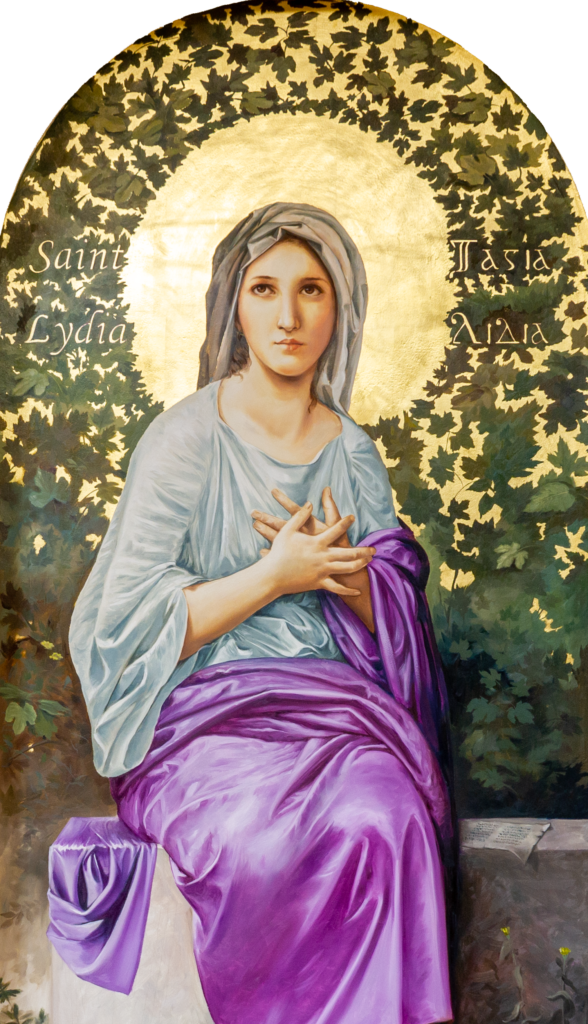St. Lydia
"And may He give all of you the heart to worship Him, and to do His will, with a great heart and a willing soul."
(2 Maccabees 1:3)

The Story In A Minute
Businesswoman by Trade
The ancient Greek city of Thyatira, nowadays Akhisar in Asia Minor, was famous for producing dyes and had a relationship with other cities due to this. This was also the hometown of St. Lydia who, much like the city, sold purple and dyed cloth and had taken her business to the city of Philippi in the colony of Macedonia. The dyes and dyed clothes she sold were of the finest kinds - extracted from fish scales, to be worn by rulers and kings.
It is possible that she was a representative of a company in Thyatira or that she had been carrying on the business of her deceased husband. For these reasons, she is thought to be a woman of wealth in her time.
Originally, St. Lydia was a Gentile from a family that was well respected among the Jews. However, she later converted to Judaism, likely in her hometown of Thyatira, and was a practicing believer when she came to Philippi. Described as a woman “who worshiped God” (Acts 16:14), she regularly partook of the Jewish Sabbath worship that occurred by the riverside in Philippi.

Baptism and Conversion
On one of these Sabbaths, St. Paul and those with him came to the riverside knowing that they would meet many faithful Jews there. One of them being St. Lydia, who heard the preaching of St. Paul and was immediately drawn to the teachings he offered. The encounter is recorded in Acts 16, as follows:
"And on the Sabbath day we went out of the city to the riverside, where prayer was customarily made; and we sat down and spoke to the women who met there. Now a certain woman named Lydia heard us. She was a seller of purple from the city of Thyatira, who worshiped God. The Lord opened her heart to heed the things spoken by Paul.”
(Acts 16: 13-14)
This sermon was the first one ever given by an apostle of Christ in Europe and indeed, St. Lydia heeded the things spoken. So much so, she asked that she and her whole family be baptized. In doing so, the River Gagtias became the first river sanctified by baptism and she became the first European convert of St. Paul. Being a businesswoman originally, one can truly say that she closed the greatest deal of all. Yet she did not rest there. Having been baptized, she persuaded the apostles to accept her offer of hospitality and opened her home to them:
“And when she and her household were baptized, she begged us, saying, ‘If you have judged me to be faithful to the Lord, come to my house and stay.’ And she constrained us.”
(Acts 16:15)
As such, she also became the first woman to offer hospitality to an apostle in that region. St. John Chrysostom says the following of her:
‘She constrained us,’ then look at her wisdom, how she importunes the Apostles, how full of humility her words are, how full of wisdom.
